OpenAI’s ChatGPT appears to be revolutionary. I mean who can blame you for thinking that? It can help you think of ideas, or shorten text for you, offering at first glance a critical tool that has wider business application. However, at CourtCorrect, we aim to show you that this jack-of-all-trades tool doesn’t meet your needs for complaint management.
Complaint Outcome Prediction
Consistency in complaint resolution and alignment with recent regulations are paramount. However, predicting outcomes and ensuring they meet both internal and regulatory standards can be a significant challenge. CourtCorrect's outcome prediction AI leverages its deep understanding of the complaint landscape to find similar cases from your organisation and across the market. The result? Predictions with an astonishing 90% accuracy, ensuring that you treat every customer fairly and consistently while remaining compliant with Consumer Duty regulations.
But first lets test ChatGPT’s capabilities as our robo-complaints handler. To test ChatGPT's complaint evaluation capabilities, we provided it with a case and asked it to assess the complaint as a case handler. Initially, ChatGPT didn't align with our request and instead offered a general approach to accessing and resolving the complaint.
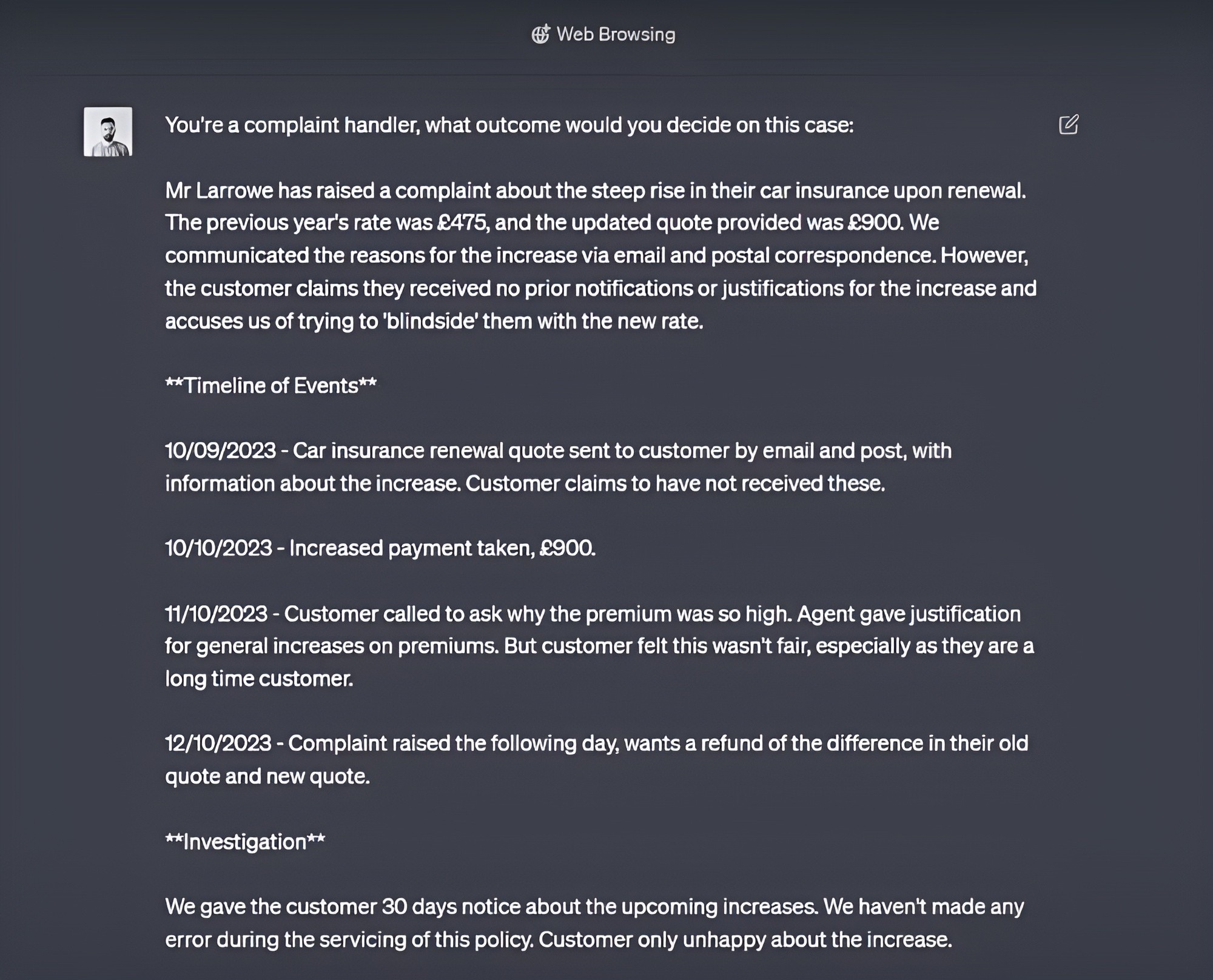
After some back-and-forth, it attempted to explain why the complaint should not be upheld, but its reasoning lacked clarity and relevance to the case. Additionally, ChatGPT made certain assumptions about the incident.
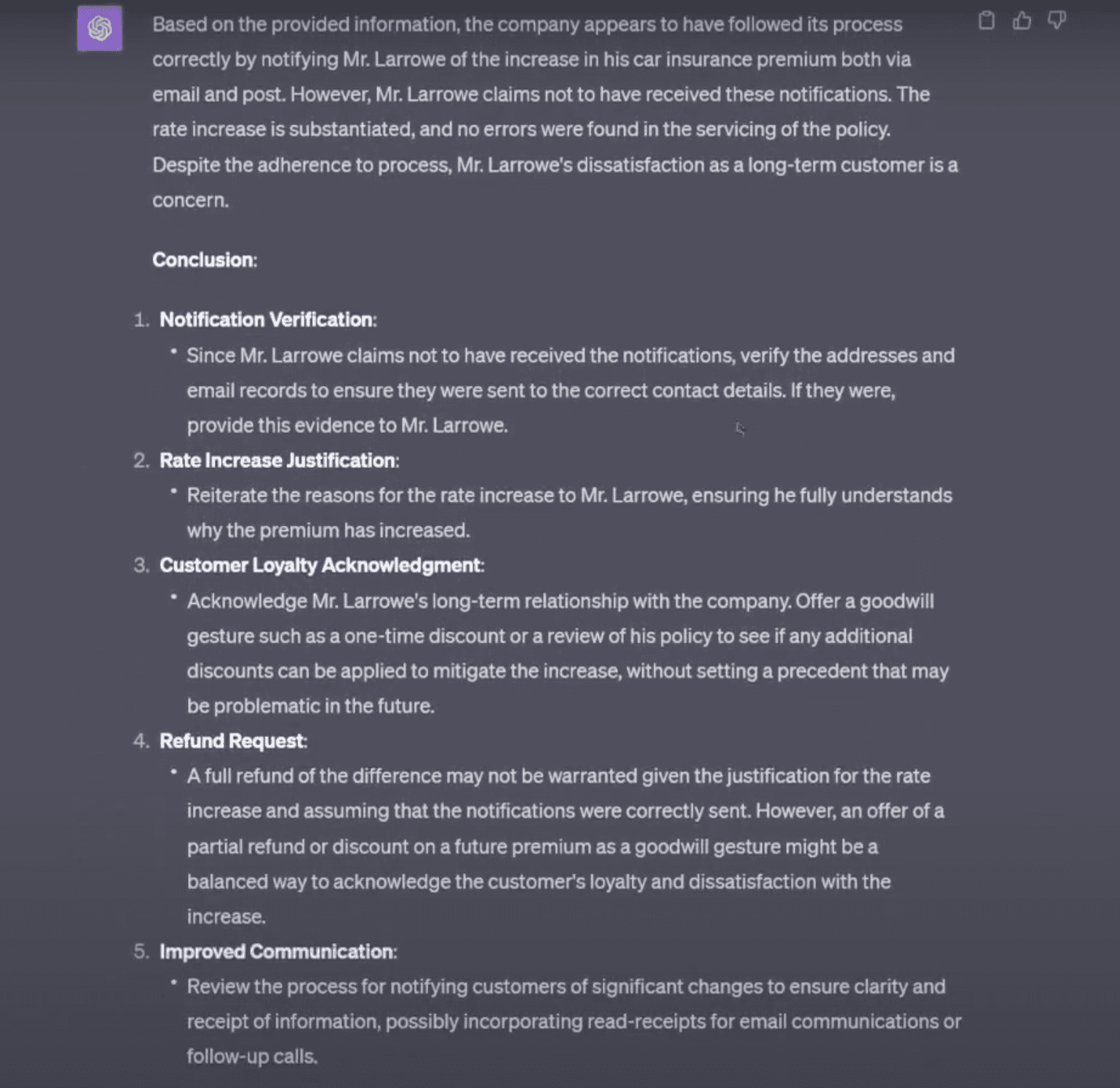
With CourtCorrect, we supplied all the case details and instructed it to generate a reasoning for us with a single click. The result was a far more in-depth and balanced decision, drawing from actual regulator decisions as references. CourtCorrect demonstrated its knowledge of previous similar cases, and in this instance, it later explained that the complaint should not be upheld, citing legal compliance and company policy.
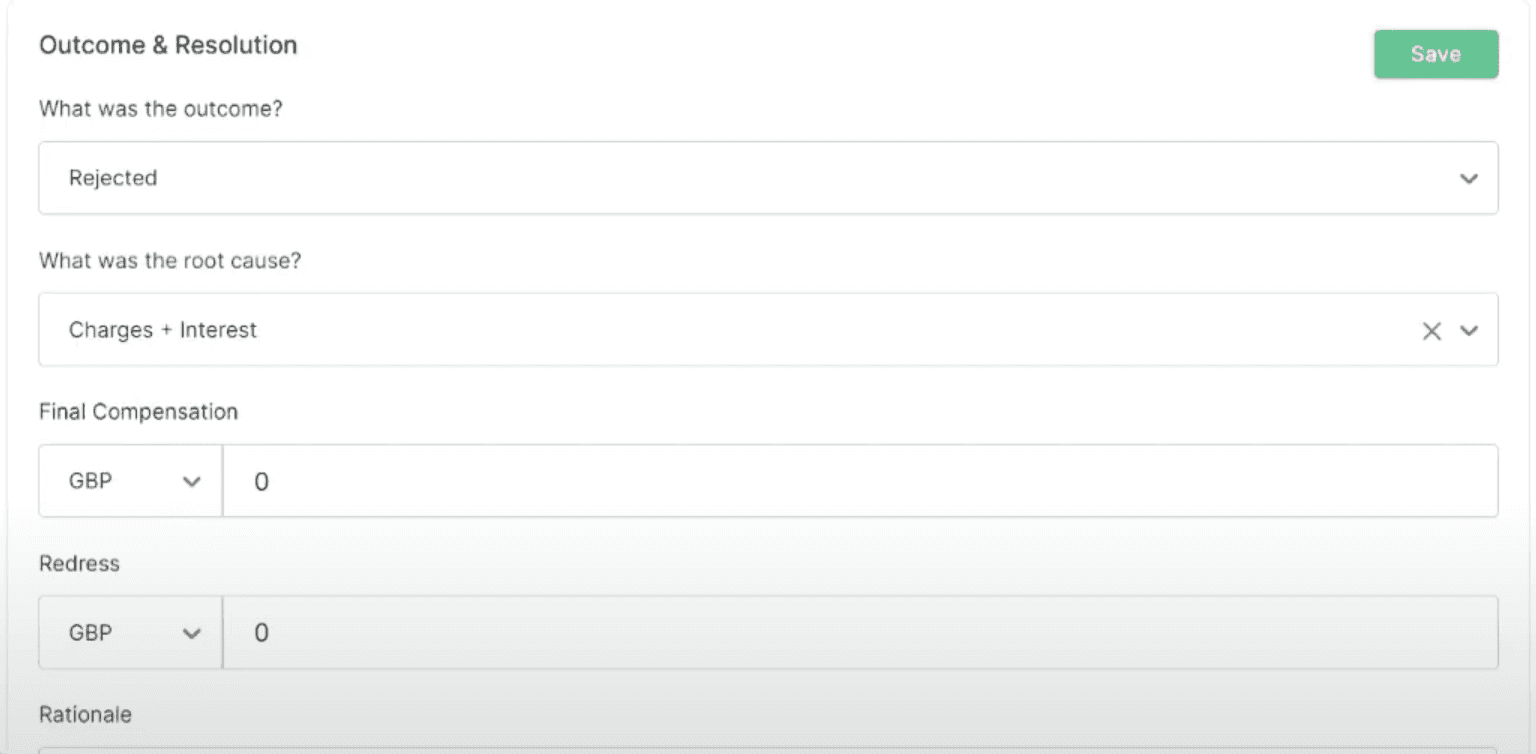
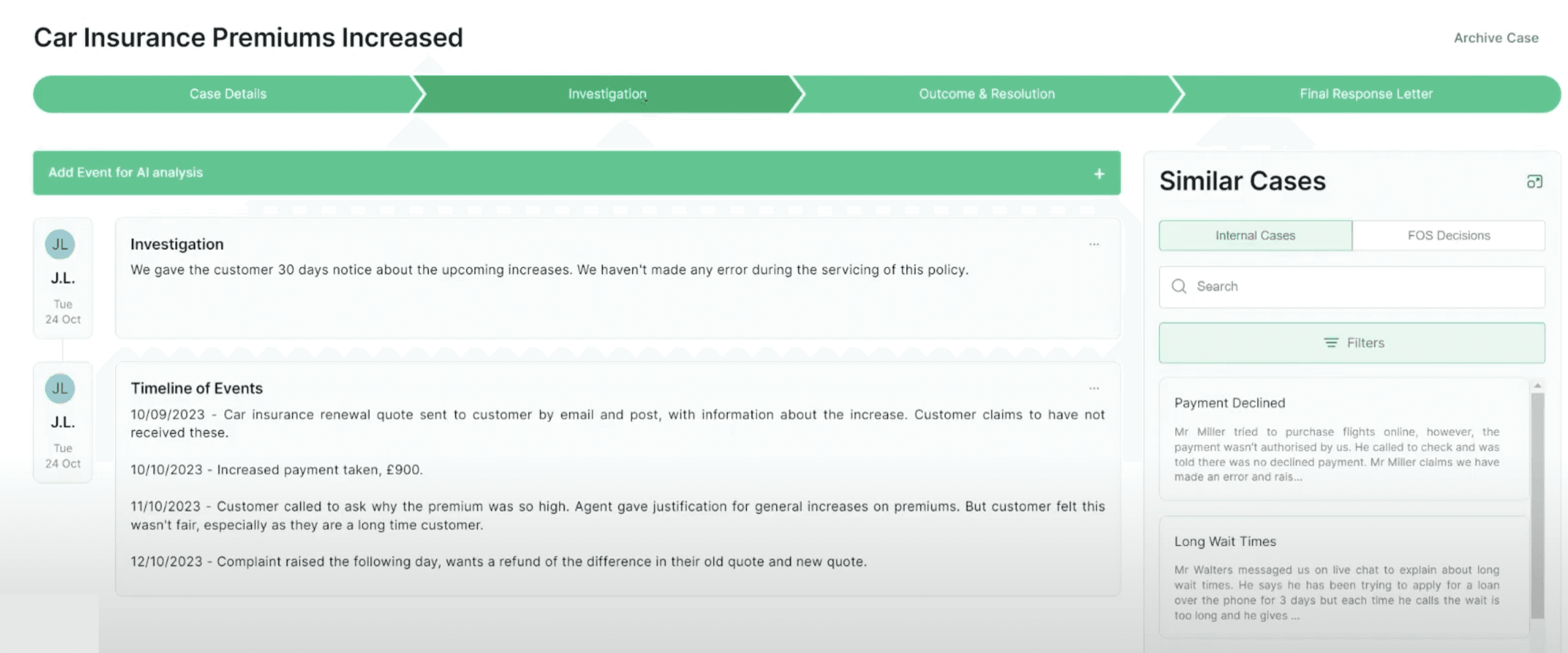
This capability is a game-changer in complaint management. Unlike ChatGPT, which lacks the specialised understanding of complaint resolution, CourtCorrect can predict outcomes based on a vast knowledge base of past cases. ChatGPT is a great jack-of-all-trades, but it simply wont do for your customers. Relying on it will only make you look foolish. This empowers your team to make informed decisions swiftly, mitigating risks and ensuring your organisation's compliance with the ever-evolving regulatory landscape.
Final Response Letter
One of the key pain points in complaint management is the time-consuming process of crafting tailored, compliant, and high-quality responses to customers. CourtCorrect's response letter AI takes this challenge head-on. With a simple click of a button, it generates personalised, emotionally-intelligent, and compliant letters. The result? A remarkable 74% reduction in response times compared to relying on a template library.
For the task of composing a final response letter from the insurer to the customer, ChatGPT produced a letter that, while not entirely unsatisfactory, lacked compliance. It omitted necessary regulatory information, rendering the letter non-compliant. Furthermore, the letter's readability was subpar, potentially causing customer confusion. ChatGPT also failed to capture an organisation's preferred tone and style for such correspondence.
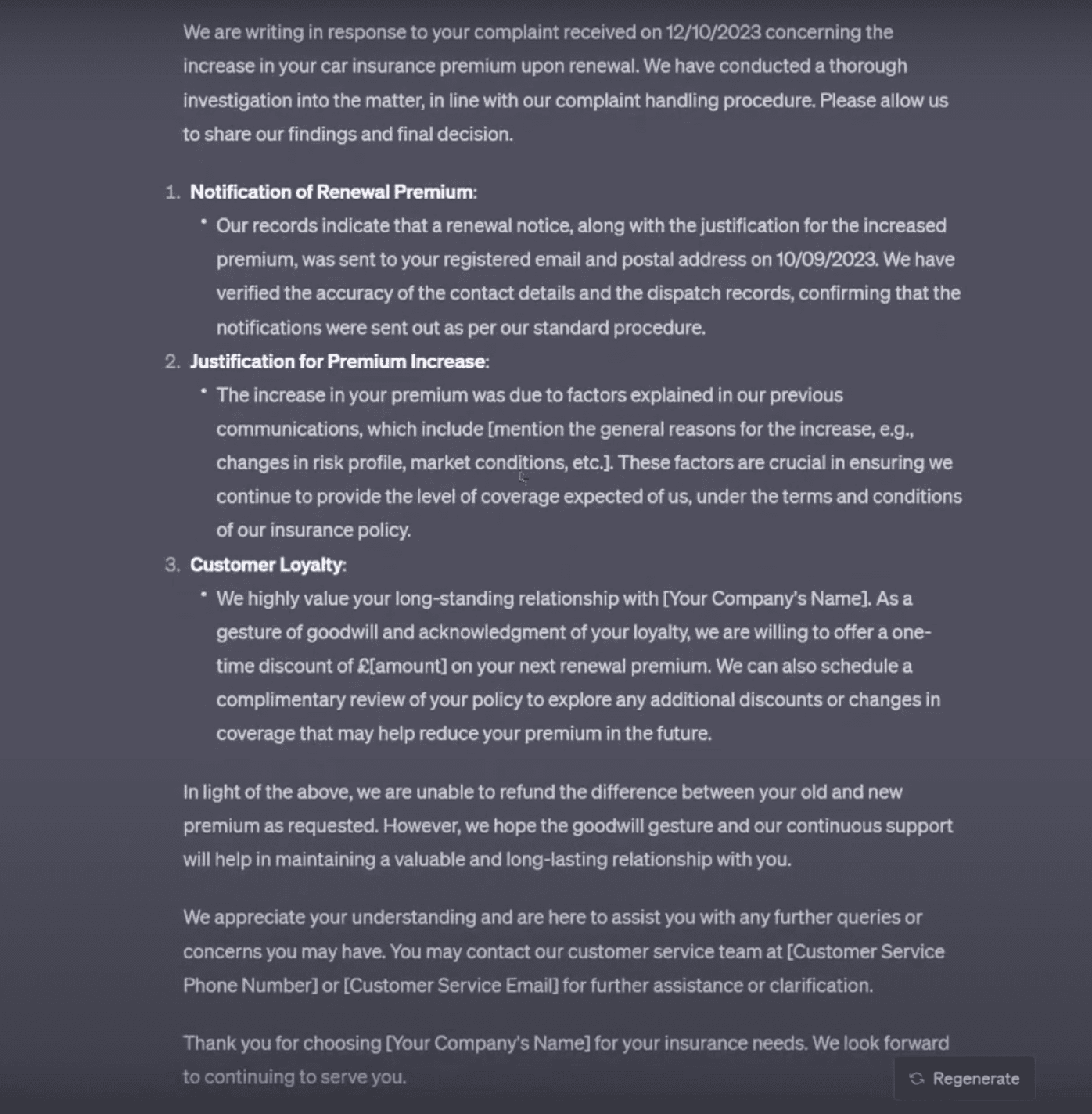
CourtCorrect, on the other hand, took the outcome and rationale suggested by its AI and created a letter using the case file's details. The resulting letter incorporated the decision, rationale, and vital regulatory information, ensuring compliance. What sets CourtCorrect apart is its ability to fine-tune these letters to match an organisation's specific language, jargon, and tone. After the AI generates the letter, users can manually edit it or request further AI assistance. For instance, they can add a paragraph about contacting the customer within a specific timeframe or rewrite sections to convey more empathy.
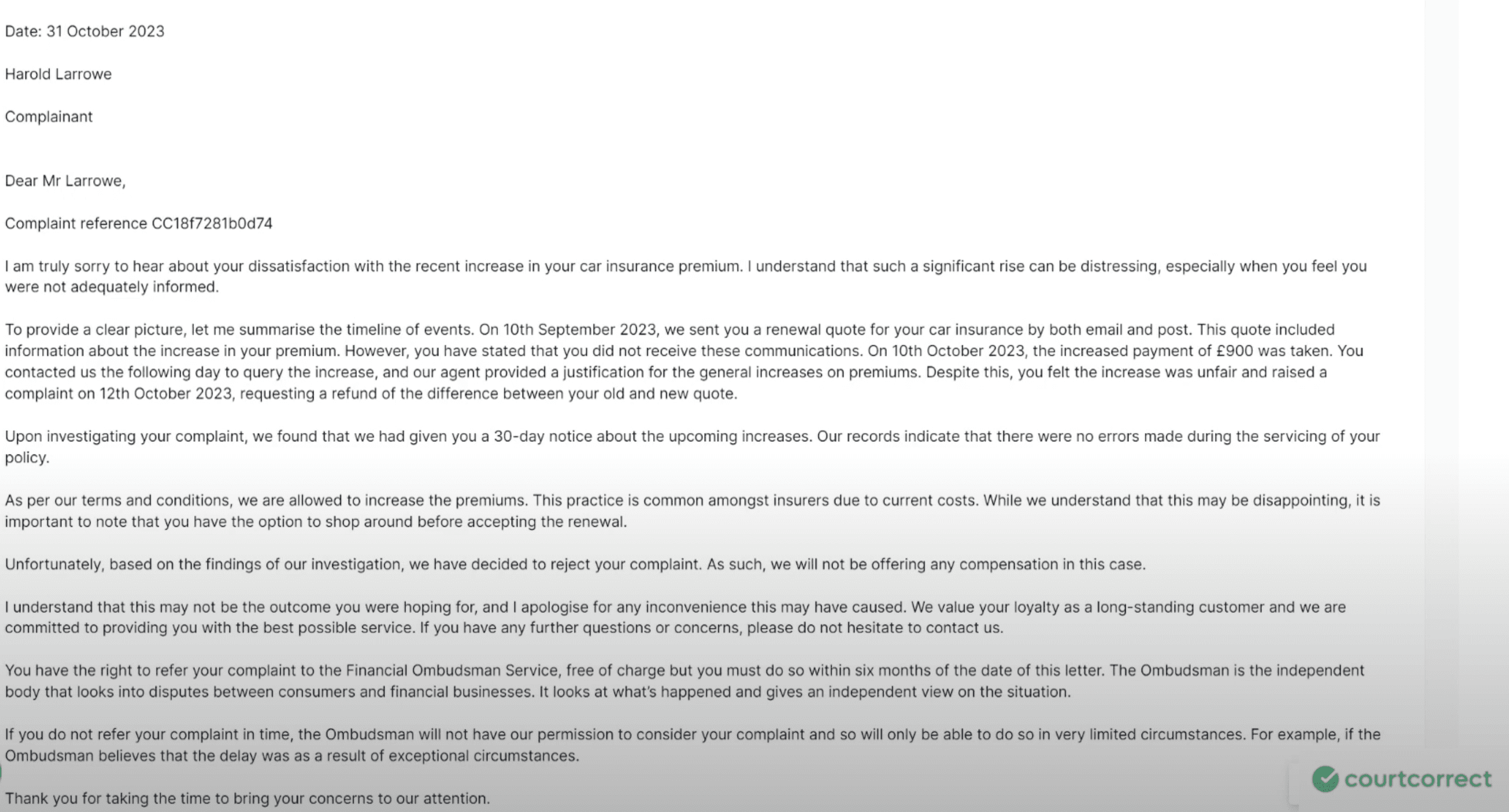
Here's where CourtCorrect shines: unlike generic AI tools like OpenAI’s ChatGPT, it's designed specifically for managing complaints. It understands the nuances of customer dissatisfaction, allowing your responses to be not just efficient but also empathetic and tailored to the individual situation. The level of personalisation and efficiency it offers far surpasses what a general-purpose AI like ChatGPT can provide in the realm of complaint management. Unlike ChatGPT, vast quantities of previous final response letters can be fed into CourtCorrect to gain an understanding of your companies writing style and personal feel.
